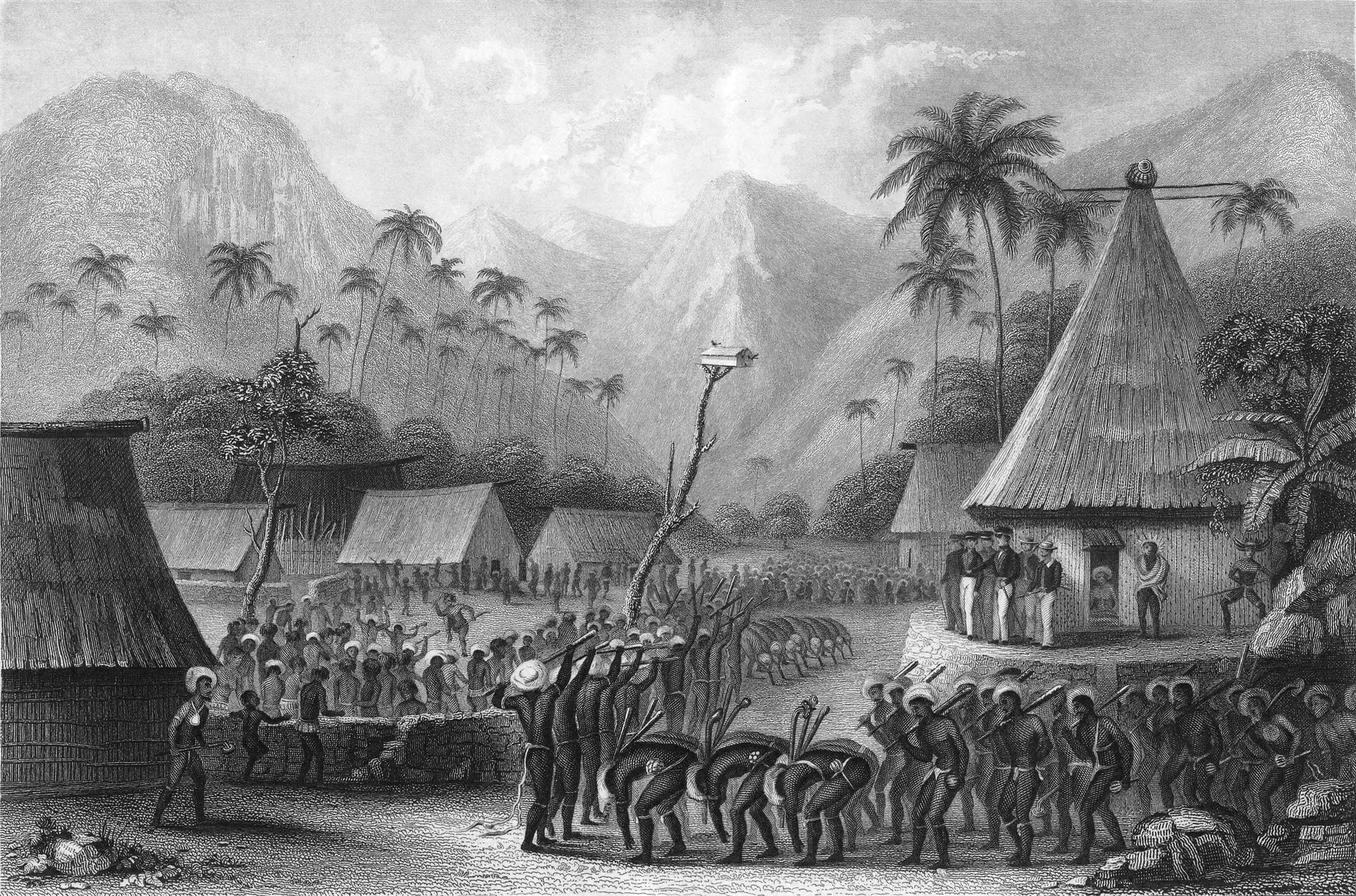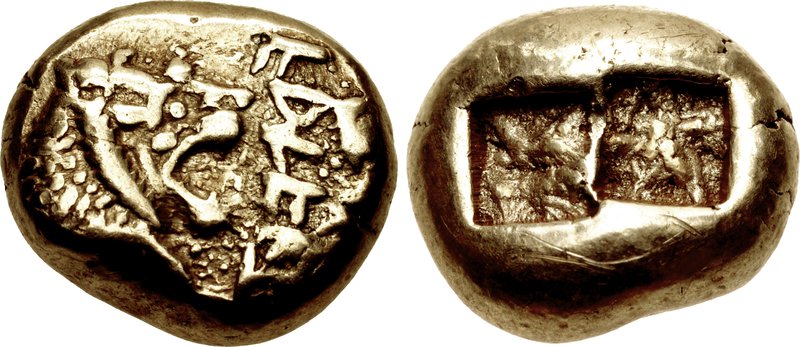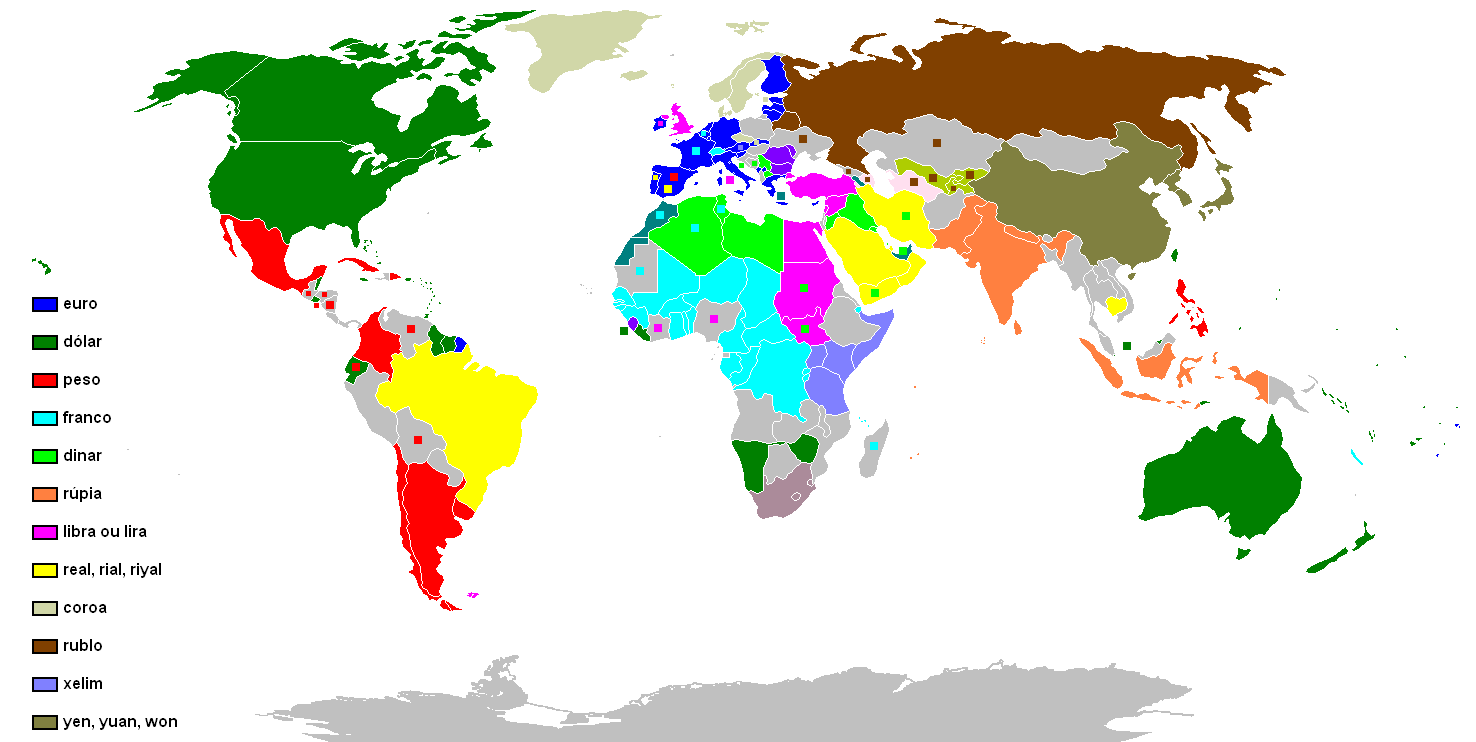|
Fijian Pound
The pound (sign: £) was the currency of Fiji between 1873 and 1969. It was subdivided into 20 shillings, each of 12 pence. History From its earliest days as a British colony, sterling coinage circulated in Fiji, supplemented by locally produced paper money. During the Great Depression of the 1930s, the Australian and New Zealand banks devalued their currencies in order to bolster exports to the UK. These banks also controlled the exchange rate for Fiji, and in 1933 the Fiji pound was devalued to £1/2/3 Fijian = £1 stg, in order to bring it into line with the devalued New Zealand pound, even though the New Zealand pound would very shortly devalue further to bring it into line with the Australian pound. In 1934, as a result of the break in parity with sterling, Fiji began to issue its own coins. When sterling was devalued on 20 November 1967, Fiji immediately followed suit. However, over the next week, Fiji considered the adverse effects that this devaluation would have ... [...More Info...] [...Related Items...] OR: [Wikipedia] [Google] [Baidu] |
Fiji
Fiji ( , ,; fj, Viti, ; Fiji Hindi: फ़िजी, ''Fijī''), officially the Republic of Fiji, is an island country in Melanesia, part of Oceania in the South Pacific Ocean. It lies about north-northeast of New Zealand. Fiji consists of an archipelago of more than 330 islands—of which about 110 are permanently inhabited—and more than 500 islets, amounting to a total land area of about . The most outlying island group is Ono-i-Lau. About 87% of the total population of live on the two major islands, Viti Levu and Vanua Levu. About three-quarters of Fijians live on Viti Levu's coasts: either in the capital city of Suva; or in smaller urban centres such as Nadi—where tourism is the major local industry; or in Lautoka, where the Sugarcane, sugar-cane industry is dominant. The interior of Viti Levu is sparsely inhabited because of its terrain. The majority of Fiji's islands were formed by Volcano, volcanic activity starting around 150 million years ago. Some geo ... [...More Info...] [...Related Items...] OR: [Wikipedia] [Google] [Baidu] |
Ovalau (Fiji)
Ovalau (pronounced ) is the sixth largest island in Fiji. It is located in Lomaiviti Archipelago. Situated at 17.70° South and 178.8° East, (60 km north east from the national capital Suva and 20 km off the east coast of Viti Levu), the island is about 13 kilometers long and 10 kilometers wide. It covers a total area of 106.4 square kilometers and has a population of around 9,100, approximately half the Lomaiviti population. Levuka, Fiji's former capital, is the largest of 24 towns and villages on the island. Ovalau is characterized by its rugged topography, with little flat land apart from the Lovoni Valley in the centre of the island. The island is an eroded volcanic crater with a narrow belt of flat to undulating country between the encircling lagoon and the steep crater sides. The highest peaks are Nadelaiovalau, with an altitude of 625 meters, in the east, and Tomuna, 526 meters, in the south. Transport around Ovalau There is one road which circles the islan ... [...More Info...] [...Related Items...] OR: [Wikipedia] [Google] [Baidu] |
1873 Establishments In Fiji
Events January–March * January 1 ** Japan adopts the Gregorian calendar. ** The California Penal Code goes into effect. * January 17 – American Indian Wars: Modoc War: First Battle of the Stronghold – Modoc Indians defeat the United States Army. * February 11 – The Spanish Cortes deposes King Amadeus I, and proclaims the First Spanish Republic. * February 12 ** Emilio Castelar, the former foreign minister, becomes prime minister of the new Spanish Republic. ** The Coinage Act of 1873 in the United States is signed into law by President Ulysses S. Grant; coming into effect on April 1, it ends bimetallism in the U.S., and places the country on the gold standard. * February 20 ** The University of California opens its first medical school in San Francisco. ** British naval officer John Moresby discovers the site of Port Moresby, and claims the land for Britain. * March 3 – Censorship: The United States Congress enacts the Comstock Law, making it ... [...More Info...] [...Related Items...] OR: [Wikipedia] [Google] [Baidu] |
Modern Obsolete Currencies
Modern may refer to: History * Modern history ** Early Modern period ** Late Modern period *** 18th century *** 19th century *** 20th century ** Contemporary history * Moderns, a faction of Freemasonry that existed in the 18th century Philosophy and sociology * Modernity, a loosely defined concept delineating a number of societal, economic and ideological features that contrast with "pre-modern" times or societies ** Late modernity Art * Modernism ** Modernist poetry * Modern art, a form of art * Modern dance, a dance form developed in the early 20th century * Modern architecture, a broad movement and period in architectural history * Modern music (other) Geography *Modra, a Slovak city, referred to in the German language as "Modern" Typography * Modern (typeface), a raster font packaged with Windows XP * Another name for the typeface classification known as Didone (typography) * Modern, a generic font family name for fixed-pitch serif and sans serif fonts (f ... [...More Info...] [...Related Items...] OR: [Wikipedia] [Google] [Baidu] |
History Of Fiji
The majority of Fiji's islands were formed through volcanic activity starting around 150 million years ago. Today, some geothermic activity still occurs on the is lands of Vanua Levu and Taveuni. Fiji was settled first by the Lapita culture, around 1,500–1,000 years BCE, followed by a large influx of people with predominantly Melanesian genetics about the time of the beginning of the Common Era. Europeans visited Fiji from the 17th century, and, after a brief period as an independent kingdom, the British established the Colony of Fiji in 1874. Fiji was a Crown colony until 1970, when it gained independence as the Dominion of Fiji. A republic was declared in 1987, following a series of coups d'état. In a coup in 2006, Commodore Frank Bainimarama seized power. When the High Court ruled in 2009 that the military leadership was unlawful, President Ratu Josefa Iloilo, whom the military had retained as the nominal Head of State, formally abrogated the Constitution and reappoint ... [...More Info...] [...Related Items...] OR: [Wikipedia] [Google] [Baidu] |
Currencies Of Oceania
A currency, "in circulation", from la, currens, -entis, literally meaning "running" or "traversing" is a standardization of money in any form, in use or circulation as a medium of exchange, for example banknotes and coins. A more general definition is that a currency is a ''system of money'' in common use within a specific environment over time, especially for people in a nation state. Under this definition, the British Pound Sterling (£), euros (€), Japanese yen (¥), and U.S. dollars (US$)) are examples of (government-issued) fiat currencies. Currencies may act as stores of value and be traded between nations in foreign exchange markets, which determine the relative values of the different currencies. Currencies in this sense are either chosen by users or decreed by governments, and each type has limited boundaries of acceptance - i.e. legal tender laws may require a particular unit of account for payments to government agencies. Other definitions of the term "currency ... [...More Info...] [...Related Items...] OR: [Wikipedia] [Google] [Baidu] |
Currencies Of Fiji
A currency, "in circulation", from la, currens, -entis, literally meaning "running" or "traversing" is a standardization of money in any form, in use or circulation as a medium of exchange, for example banknotes and coins. A more general definition is that a currency is a ''system of money'' in common use within a specific environment over time, especially for people in a nation state. Under this definition, the British Pound Sterling (£), euros (€), Japanese yen (¥), and U.S. dollars (US$)) are examples of (government-issued) fiat currencies. Currencies may act as stores of value and be traded between nations in foreign exchange markets, which determine the relative values of the different currencies. Currencies in this sense are either chosen by users or decreed by governments, and each type has limited boundaries of acceptance - i.e. legal tender laws may require a particular unit of account for payments to government agencies. Other definitions of the term "currency ... [...More Info...] [...Related Items...] OR: [Wikipedia] [Google] [Baidu] |
Currencies Of The Commonwealth Of Nations
A currency, "in circulation", from la, currens, -entis, literally meaning "running" or "traversing" is a standardization of money in any form, in use or circulation as a medium of exchange, for example banknotes and coins. A more general definition is that a currency is a ''system of money'' in common use within a specific environment over time, especially for people in a nation state. Under this definition, the British Pound Sterling (£), euros (€), Japanese yen (¥), and U.S. dollars (US$)) are examples of (government-issued) fiat currencies. Currencies may act as stores of value and be traded between nations in foreign exchange markets, which determine the relative values of the different currencies. Currencies in this sense are either chosen by users or decreed by governments, and each type has limited boundaries of acceptance - i.e. legal tender laws may require a particular unit of account for payments to government agencies. Other definitions of the term "currency ... [...More Info...] [...Related Items...] OR: [Wikipedia] [Google] [Baidu] |
Currencies Of The British Empire
A currency, "in circulation", from la, currens, -entis, literally meaning "running" or "traversing" is a standardization of money in any form, in use or circulation as a medium of exchange, for example banknotes and coins. A more general definition is that a currency is a ''system of money'' in common use within a specific environment over time, especially for people in a nation state. Under this definition, the British Pound Sterling (£), euros (€), Japanese yen (¥), and U.S. dollars (US$)) are examples of (government-issued) fiat currencies. Currencies may act as stores of value and be traded between nations in foreign exchange markets, which determine the relative values of the different currencies. Currencies in this sense are either chosen by users or decreed by governments, and each type has limited boundaries of acceptance - i.e. legal tender laws may require a particular unit of account for payments to government agencies. Other definitions of the term "currency ... [...More Info...] [...Related Items...] OR: [Wikipedia] [Google] [Baidu] |
World War II
World War II or the Second World War, often abbreviated as WWII or WW2, was a world war that lasted from 1939 to 1945. It involved the vast majority of the world's countries—including all of the great powers—forming two opposing military alliances: the Allies and the Axis powers. World War II was a total war that directly involved more than 100 million personnel from more than 30 countries. The major participants in the war threw their entire economic, industrial, and scientific capabilities behind the war effort, blurring the distinction between civilian and military resources. Aircraft played a major role in the conflict, enabling the strategic bombing of population centres and deploying the only two nuclear weapons ever used in war. World War II was by far the deadliest conflict in human history; it resulted in 70 to 85 million fatalities, mostly among civilians. Tens of millions died due to genocides (including the Holocaust), starvation, ma ... [...More Info...] [...Related Items...] OR: [Wikipedia] [Google] [Baidu] |
Thomas De La Rue
Thomas de la Rue (24 March 1793 – 7 June 1866) was a printer from Guernsey who founded De La Rue plc, a printing company which is now the world's largest commercial security printer and papermaker. Biography Born on Le Bourg, Forest, Guernsey to Rachael () and Eleazar de la Rue. Thomas was the seventh of their nine children. Thomas de la Rue was apprenticed to a master-printer, Joseph Antoine Chevalier in Saint Peter Port in 1803. He went into business with Tom Greenslade and together they launched the newspaper ''Le Publiciste''. Having fallen out with Greenslade, Thomas de la Rue launched his own publication, ''Le Miroir politique'', first published on 6 February 1813. In 1816 he left Guernsey, for London, where he initially established a business making straw hats. Then in 1830 together with Samuel Cornish and William Rock he founded a business of "cardmakers, hot pressers and enamellers". in 1831, de la Rue was granted the right to print playing cards, making it the first co ... [...More Info...] [...Related Items...] OR: [Wikipedia] [Google] [Baidu] |







